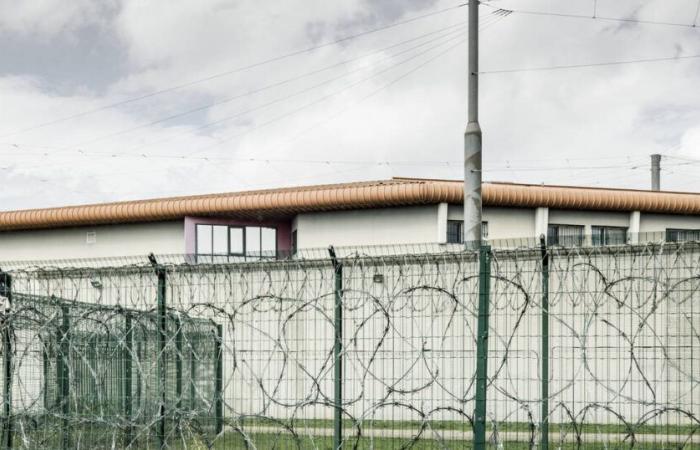An unusual concern arose a few days ago in the discussions between defense lawyers at the Mazan rape trial. On the day of the verdict, the fifty accused present – the fifty-first is on the run – will not be able to be accompanied by their relatives before the Vaucluse criminal court. Even by adding chairs, even by pushing the walls, the courtroom of the Avignon courthouse, although large, will remain too small to accommodate families in addition to lawyers, law enforcement, and the press, of which only three representatives may be present. The probable future convicts, some of whom arrived free at the court, will leave handcuffed towards the “arriving” areas of the remand centers, without having been able to say goodbye to those who came to support them.
The public prosecutor requested sentences ranging from four to twenty years in prison for the 51 men tried since September for the rapes of Gisèle Pelicot. 32 appear free, under judicial supervision. Dozens of committal warrants (placement in detention) could thus be issued simultaneously. A situation “extremely rare”, “worthy of Italian mafia trials», concedes Ludovic Friat, of the Union Syndicale des Magistrates (USM), the first apolitical union of judges. “It is both normal management, because convicted defendants have to be taken to prison, this happens every day, and exceptional, given the scale of the trial.”
A period of ten days to appeal
Asked by Liberation on how it is preparing for this verdict, the prison administration (AP) provides few details. Among the accused, 18 were tried while they were in pre-trial detention in remand centers, penal establishments provided for people awaiting trial or sentenced to sentences of less than two years. At the end of the verdict, those sentenced to criminal imprisonment will be escorted back to their respective remand centers – many of them are at that of Avignon-Le Pontet – with AP agents, as since the start of the hearing.
They will remain there for ten days, i.e. the entire duration of the appeal period, before being directed, if they do not appeal and are therefore definitively sentenced, to an establishment for punishment by the court. Around twenty agents from the interregional directorate of penitentiary services (DISP) of Marseille, and more marginally those of Toulouse, have been mobilized in recent months to extract imprisoned defendants from their cells and take them to court.
For the other defendants, who were until now under judicial supervision: in the event of a prison sentence, “their transfers will be organized by the jurisdiction in conjunction with the internal security forces”completes the AP. They will, for their part, be welcomed by the “arriving” sections of the remand centers within the jurisdiction of the jurisdiction and will remain there for ten days during which they can appeal the verdict. At the end of this period, people who have not appealed may also be directed by the court to a suitable prison establishment, according to the usual distribution criteria.
“Structurally congested” prisons
Sentence establishments can be detention centers, focused on the social reintegration of prisoners, or central centers, for convicted persons considered to be the most dangerous, whose sentences are very long. Several criteria come into play to determine where convicted persons will serve their sentences.
“We must then respect the principle of the right to maintain family ties. That is to say that we must, absolutely, ensure not to send people too far from the place where they have their family ties”explained Ludovic Friat of the USM. “With criminal sentences, we always try initially to respect a period of orientation for the detainee based on his profile, his personality, the length of the sentence: the judge will be able to direct him to the place of detention most suitable.” A reality principle then enters the equation. “French prisons are structurally congested”recalls the magistrate.
Asked about a possible impact of a significant influx of new prisoners this weekend, the prison administration does not respond, simply emphasizing “the context of significant prison overpopulation” at the national level (128.5% as of November 1), and at the local level (149.3% for establishments reporting to the Marseille prison services, 193% for those reporting to Toulouse).






